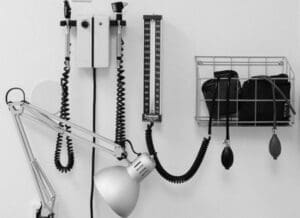7 Ways to Cut Healthcare Costs (While Staying Healthy)

Whether you are healthy or sick, it’s likely that your healthcare bills are a large portion of your monthly income. Those without health insurance face astronomical medical bills, and even those with health insurance can largely expect their premiums to increase as Obama’s Affordable Care Act is implemented in the future. Either way, there’s a good chance your healthcare costs are high and getting higher.
Instead of a healthcare system, the United States has a disease management system – and that’s one system you do not want to be part of. Hospitals and doctors can handle your illnesses, diseases and injuries – but only you can handle your health care. Take responsibility for your healthcare, educate yourself about your options and keep your medical bills as low as possible with the following tips.
1. Don’t get sick: The best healthcare is prevention, and not getting sick or injured is still the best policy for avoiding huge health care bills. Eat a balanced diet of fresh organic produce, whole grains and lean protein; exercise regularly and think positively: label your medical files under “HEALTH” instead of “MEDICAL.”
2. Know viral from bacterial infections: Bacterial infections require a doctor’s visit and can be cured with a round of antibiotics; viral infections are far more common and cannot be cured by any appointment. You’re just wasting your time and money by going to the doctor for a viral infection, and you may even make yourself sicker by exposing your embattled immune system to the germs at the healthcare clinic. If you are ill and need help, don’t hesitate to see the doctor – but learn when to diagnose yourself with the age-old prescription for fluids and rest. Viral sore throats come on gradually and escalate with mild to moderate fever; strep throat (a bacterial infection that requires a doctor) comes on quickly, is accompanied by high temperatures and red, swollen tonsils with white splotches.
3. Talk prescription and procedure costs with your doctor: Instead of just smiling and nodding when your doctor hands you a prescription, ask direct questions about the cost. Is there a cheaper version or perhaps a generic equivalent that will work just as well? Wealthy doctors often don’t think about expenses when they dole out advice, and it’s up to you to remind them that you live in the real world and use real money to pay for healthcare.
4. Make sure you’re in the network: If you have health insurance, double check to make sure that every doctor or specialist you see is part of your network. For emergency services this is not usually possible, however be sure that any other healthcare you receive comes from doctors in your insurance network for a lower rate.
5. Ask your doctor if her recommendations are absolutely necessary: Don’t ever forget that healthcare in our country is a for-profit enterprise. Doctors often order plenty of tests and procedures “just in case” in order to cover themselves from being sued for malpractice. If your doctor recommends a $2000 allergy test because your face broke out from eating mangoes, you might just prefer to avoid mangoes instead of going for the expensive testing.
6. Ask for a cash discount: You will sometimes be offered a lower price on your medical care if you can pay in cash. It never hurts to ask!
7. Read health care bills, ask questions and appeal anything that looks wrong: Pricing for many health-related procedures often seems to be pulled out of thin air, and medical bills are notorious for having numerous errors. Don’t just cut the check – know what you are paying for and why. You’ll need some patience to handle the billing operations at most medical companies, but you can always hire a professional to battle your bills for you if they are crushingly expensive.
Image: striatic

